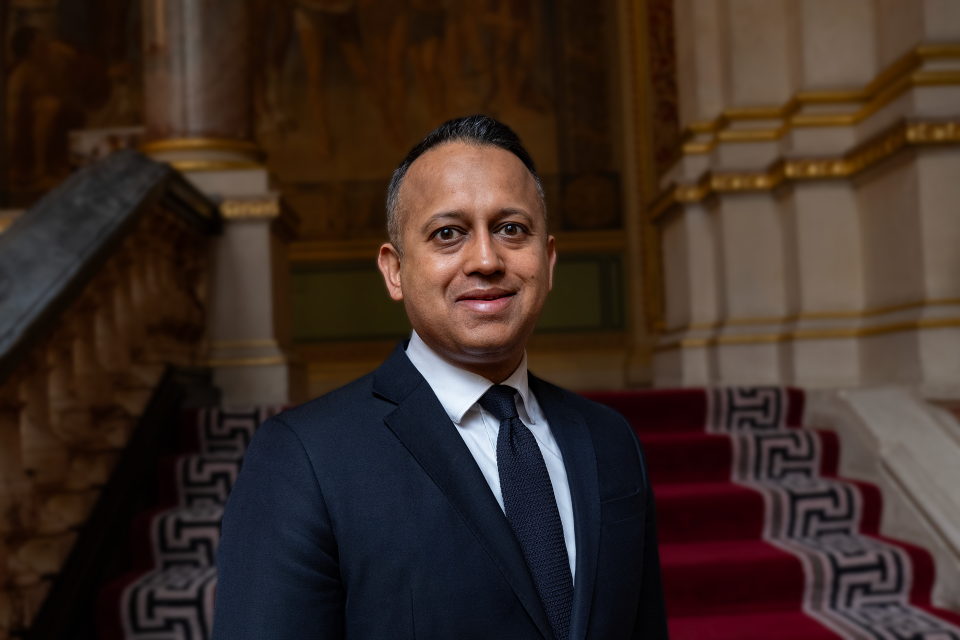100th anniversary of the March 1st Movement: speech by Nik Mehta
Nik Mehta, BE Seoul Charge D’Affaires, spoke at Yonsei University to mark the 100th anniversary of the March 1st Movement (Sam-il Undong*).

Distinguished guests, ladies and gentlemen,
My name is Nik Mehta, Charge D’Affaires of the British Embassy Seoul. I am delighted to join you this evening to commemorate the 100th anniversary of the 1 March Movement in such a poignant week for peace on the Korean peninsula. Thank you for the opportunity to talk about the UK’s colonial legacy and its impact on universal peace.
As I stand here this evening, as a representative of the UK government, I am acutely aware of the UK’s colonial history. My family are East African Asians. My mother was thrown out of Uganda in the early 1970s by Idi Amin’s forces after he decided to expel all Asians. She was taken in by the UK. My father left Kenya at around the same time to study in the UK. They are very much the children of Britain’s colonial past and imperial history. Indeed, many years ago when I first told some members of my extended family that I was going to work for the UK Foreign Office, they were quite shocked – and even a little upset. Some asked me if I had forgotten what the British did to “our people”.
I think it’s fair to say that the UK does have a more complex historical legacy than most countries. And it’s not all good. I strongly feel that we must acknowledge our past – the good and the bad. The process of reconciliation and revisiting the past is not an easy one. The UK’s colonial legacy will remain controversial, but what’s important is that we continue to learn the lessons of our history.
As you all know, Britain and its allies were instrumental in setting up the international order that has now broadly existed since 1945. The thinking behind this was simple – that the best way to create stability was to create a system where ‘might is not automatically right’ – and where every country, large or small, lives under the protection of the UN charter. Having a rules based international order – with multilateral institutions like the United Nations, World Bank and WTO – has made us all more prosperous and successful than ever before in the history of humanity.
In the more recent past, this year marks the 20th anniversary of the Belfast Agreement, more commonly known as the Good Friday Agreement, which effectively brought an end to 30 years of sectarian violence in Northern Ireland and established a cross-community consensus for peace. What history clearly teaches us then, is that you cannot have lasting peace without justice, accountability and reconciliation.
But we must not be complacent. Increasingly this rules based international order is being called into question as we saw on the streets of Salisbury last year, and in some parts of the world the democratic values that once bound us together are threatened. So we need to ask ourselves, what’s our plan for the future?
I know that is an open question, but from the UK perspective I think the answer lies in using the history we have to build a common future. For example, largely as a result of our history and language, the UK has truly global connections and the British diaspora is enormous. Last year we hosted the Commonwealth Heads of Government meeting in London. The summit demonstrated that the Commonwealth is not only united by a common history, but a desire to work together to face global challenges. The Summit delivered a unanimous commitment to oppose chemical weapons and enhance cyber-security cooperation in order to protect against ever more sophisticated digital threats.
The UK is no longer a superpower. And we don’t have an empire any more – a fact which I for one am grateful for. But as we depart from the EU, it’s important to remember that we have the 5th biggest economy in the world, the second biggest military budget in NATO, the third biggest overseas aid budget, one of the world’s largest financial centres, are a permanent member of the UNSC… we also have six of the world’s top twenty universities including the very best, 450,000 overseas students studying in the UK (with around 5,000 Koreans, we really want to see that number increase), and 39 million visits by tourists in 2017 (with around 200,000 Koreans – again, not high enough, we really want to see that number increase)… I think I may have said enough, but I hope you can see how proud I am of the global impact the UK continues to make and what we continue to stand for.
I am also proud that I can stand in front of you as a British diplomat and as a son of Commonwealth immigrants. I continue to believe that diversity remains one of the UK’s greatest strengths.
Finally, we must remember that the impressive progress of modern history, with South Korea being a tremendous example of this, has happened not by accident but by design. Its continued success can’t be taken for granted. It is therefore up to all of us in the international community to strengthen our resolve, and make the most of what history has given us, in order to tackle the challenges of tomorrow.
Thank you
*Sam-il Undong: one of the earliest public displays of Korean resistance after the Japanese annexation of Korea in 1910.